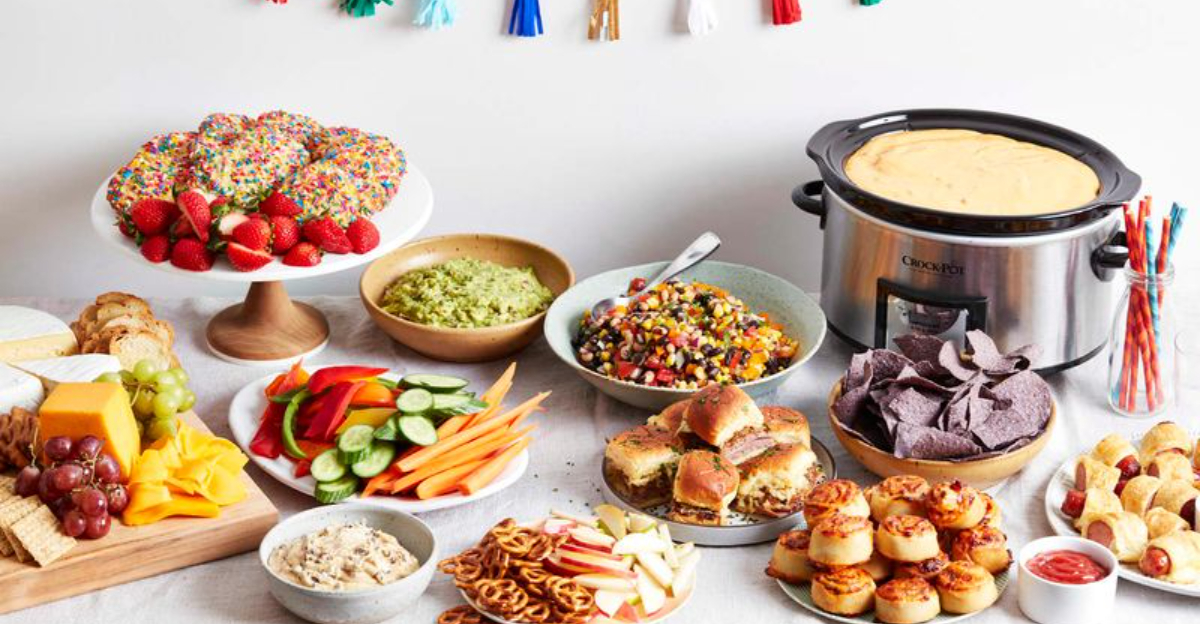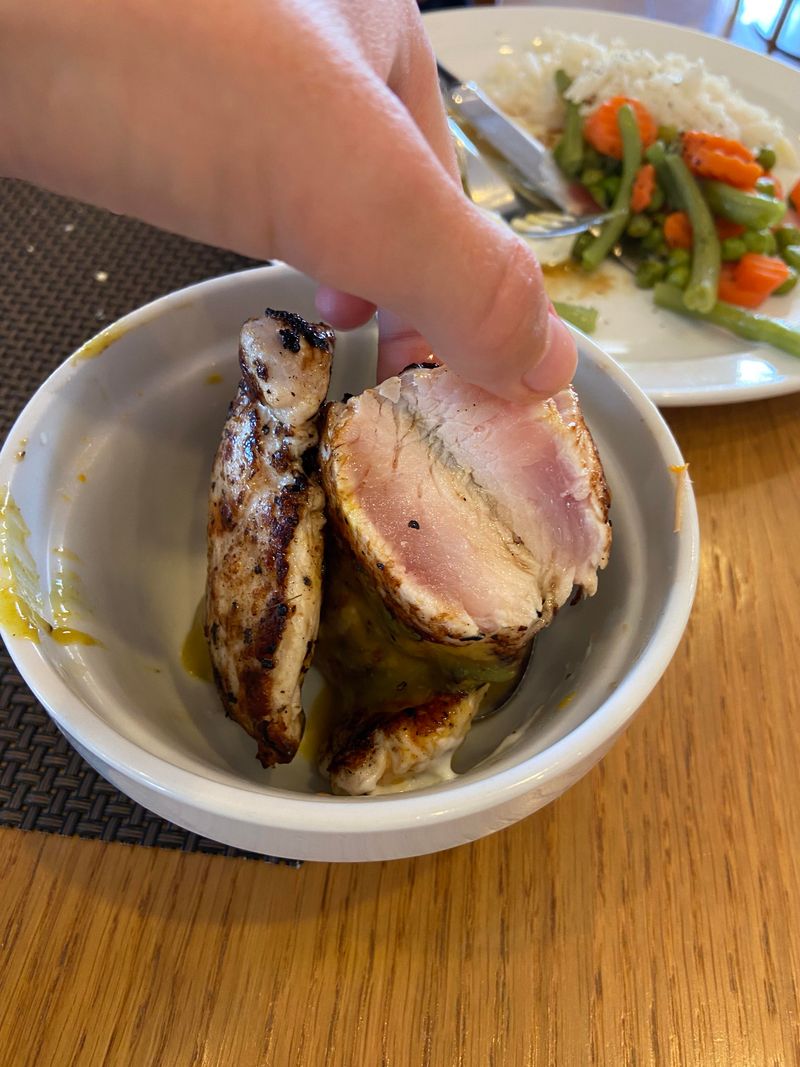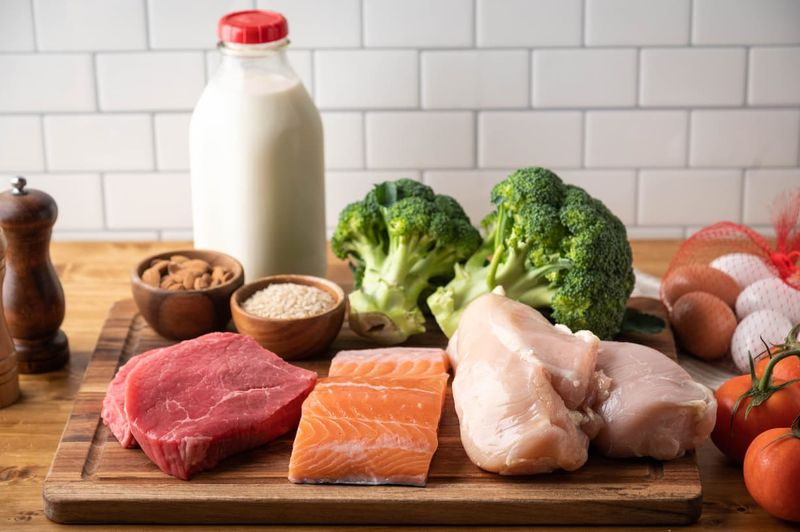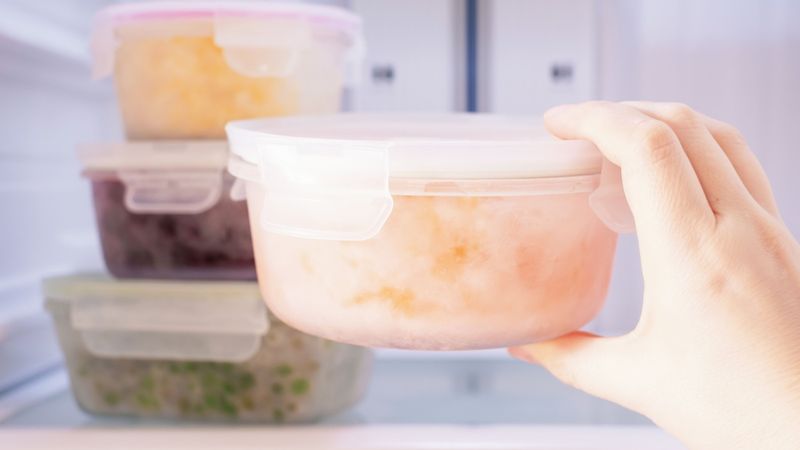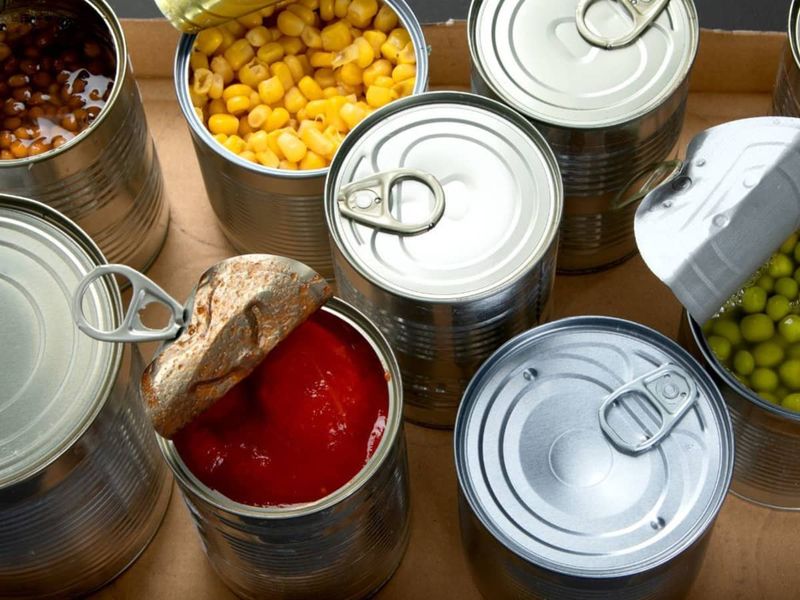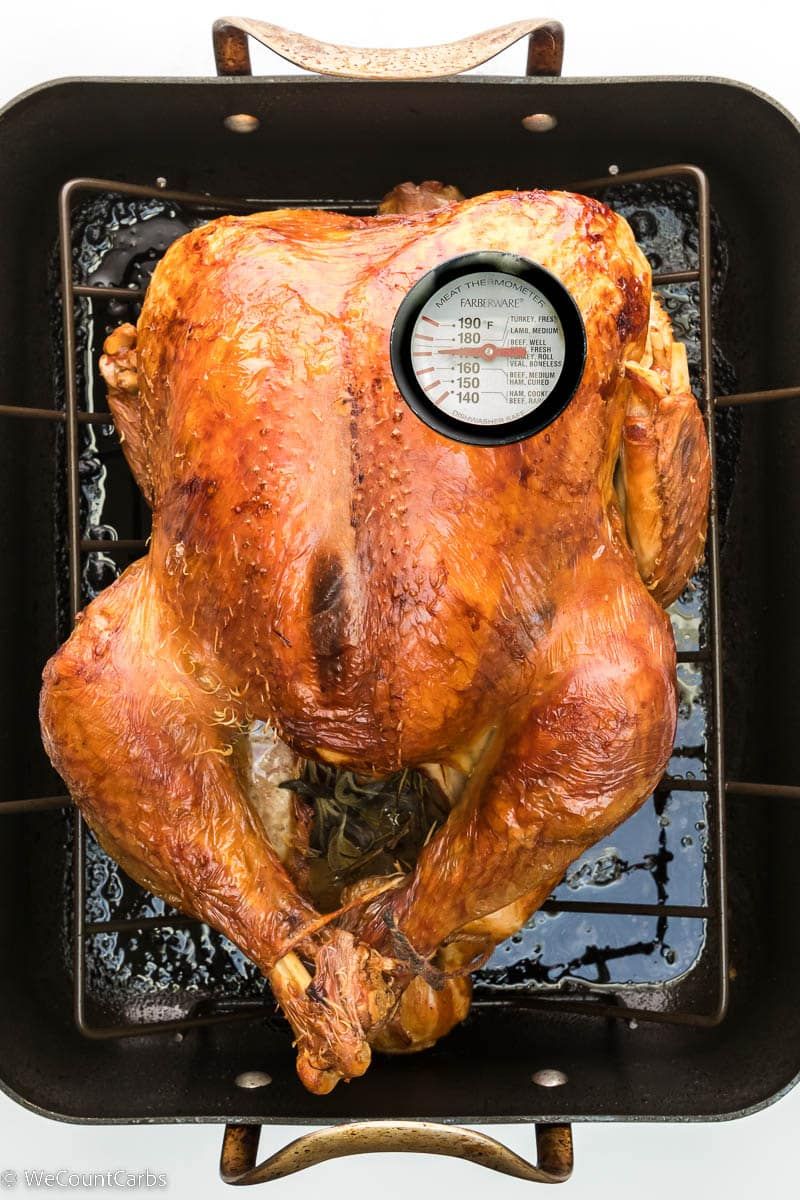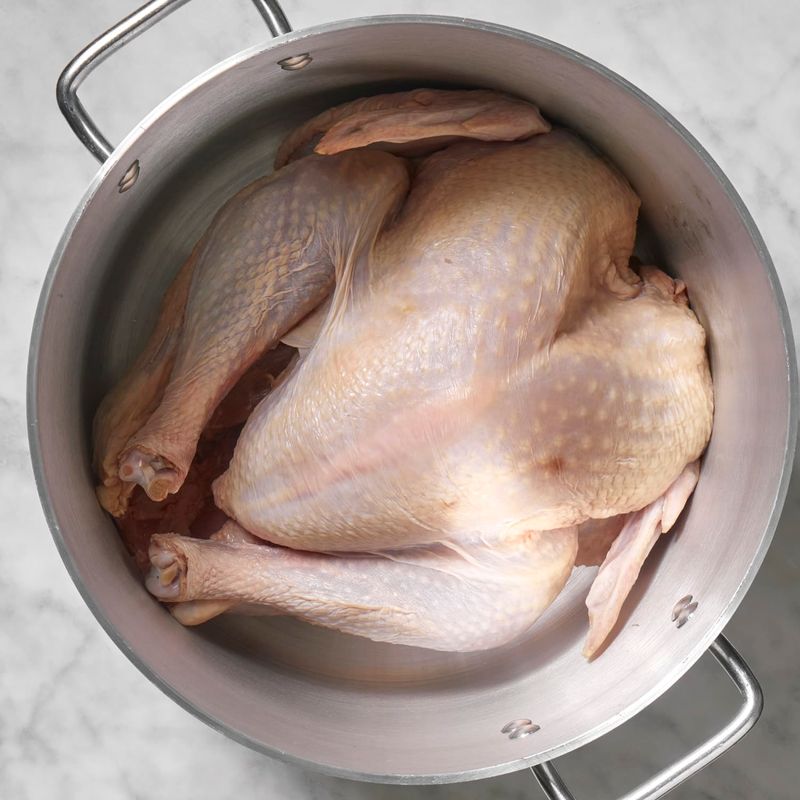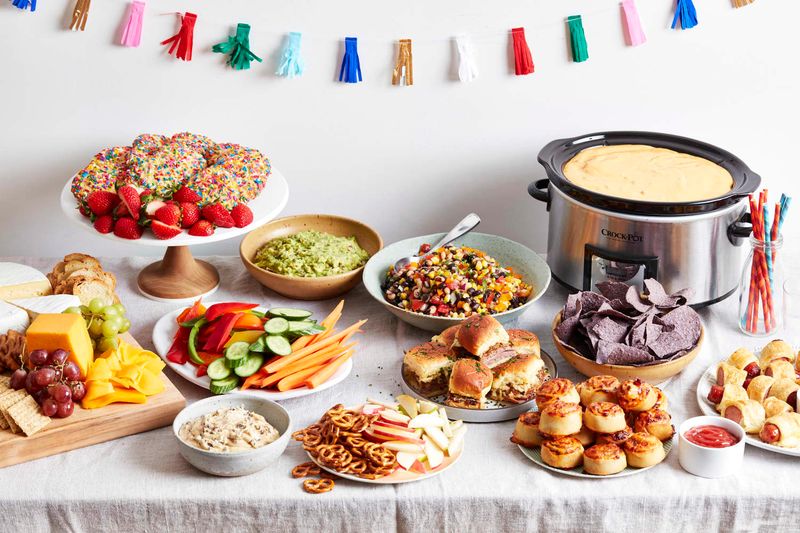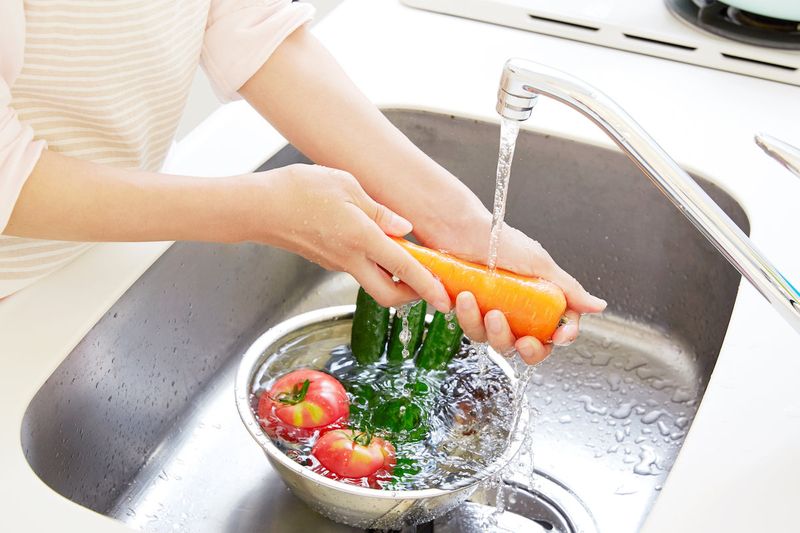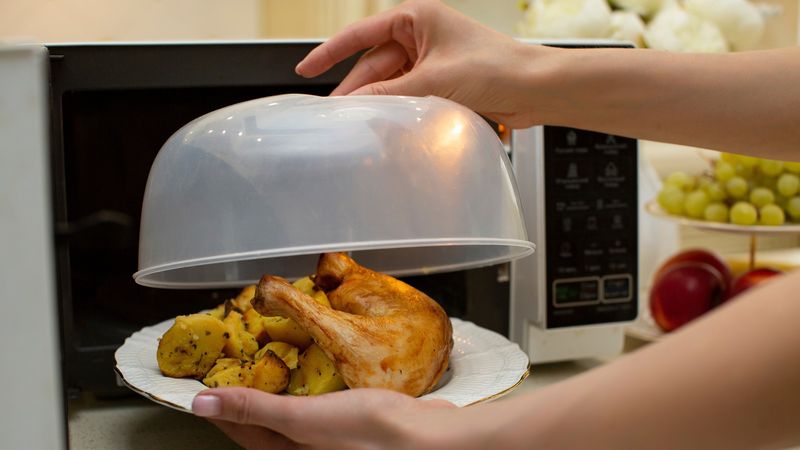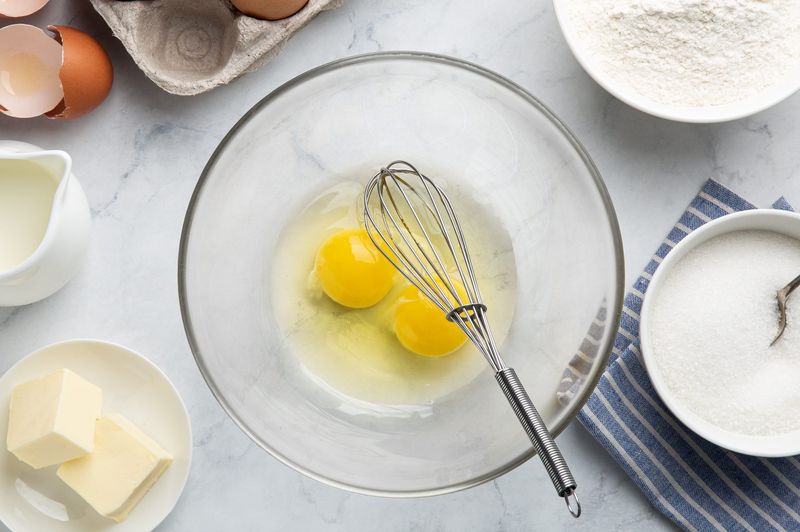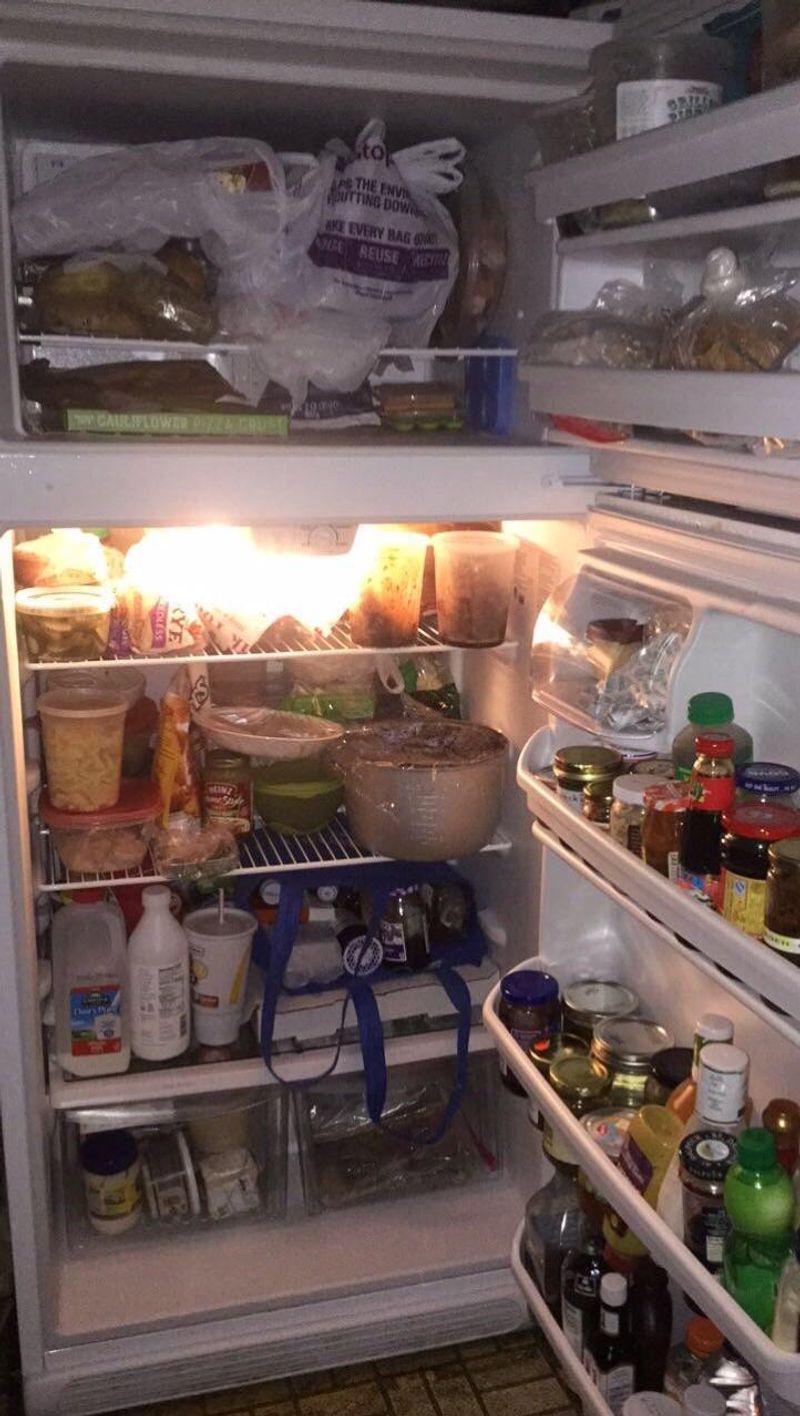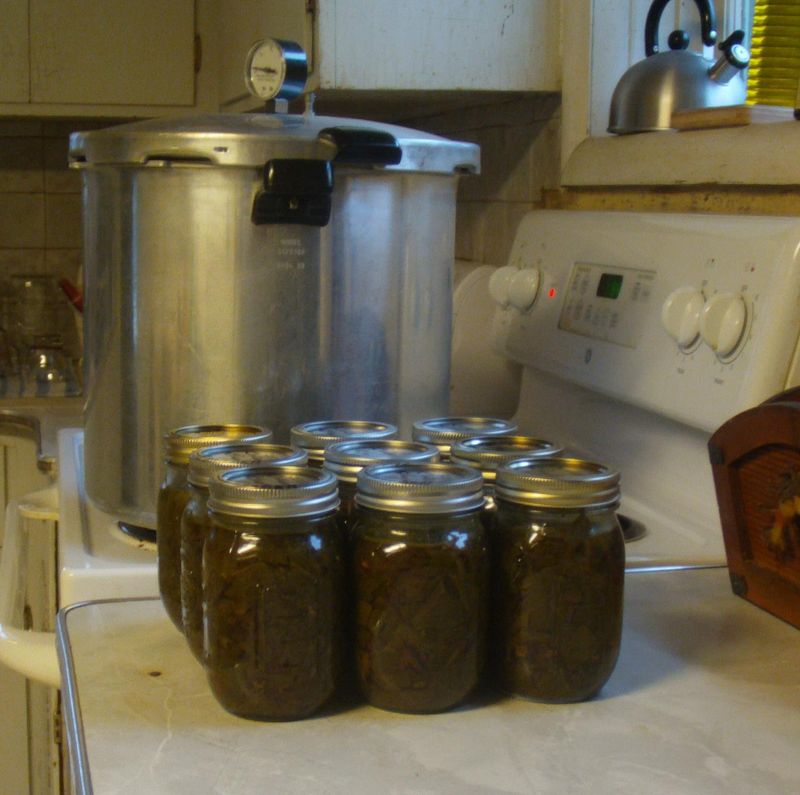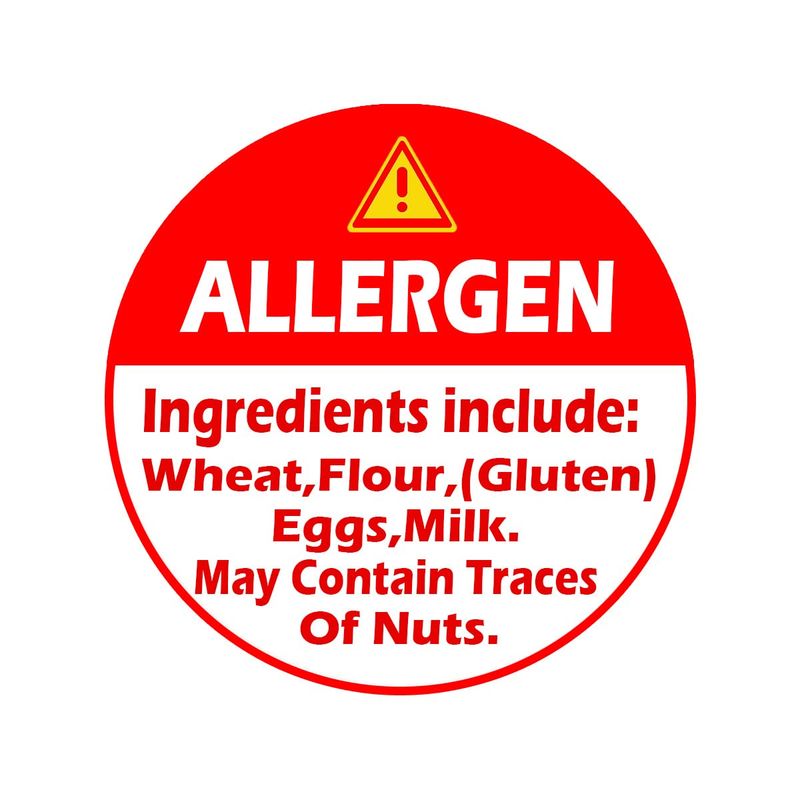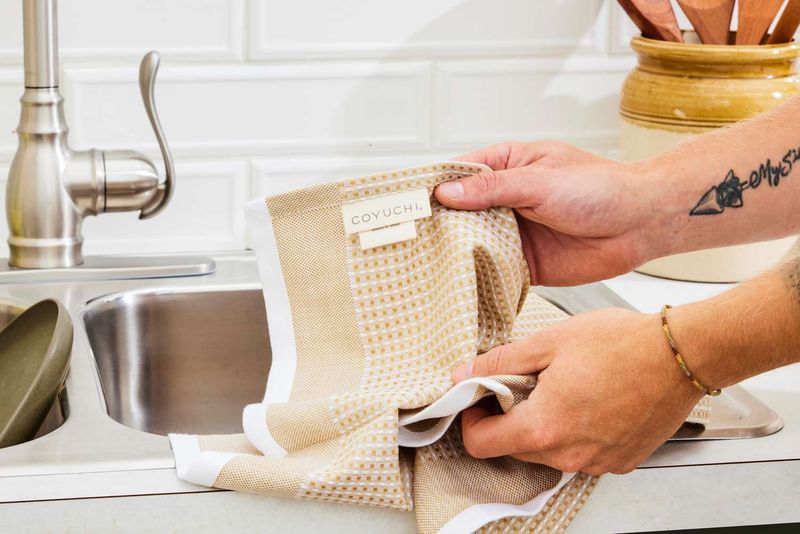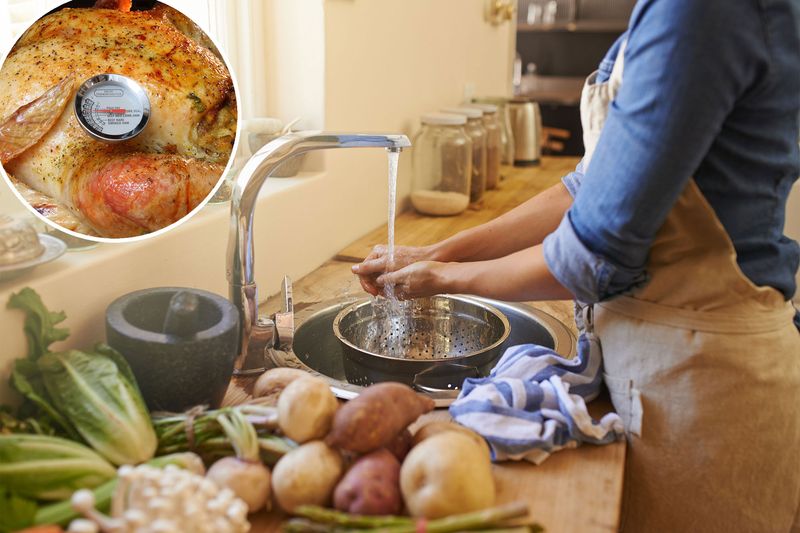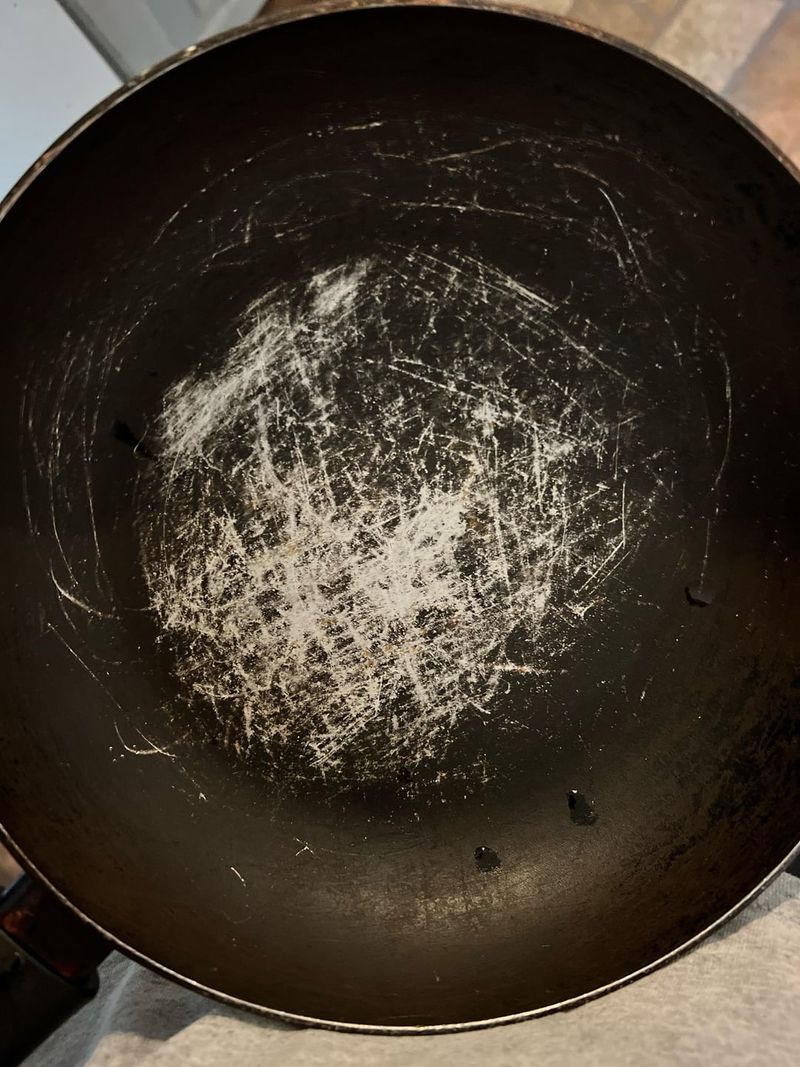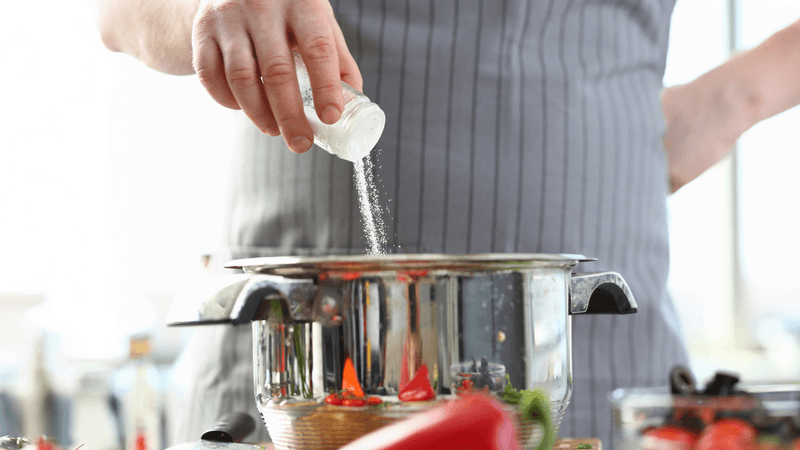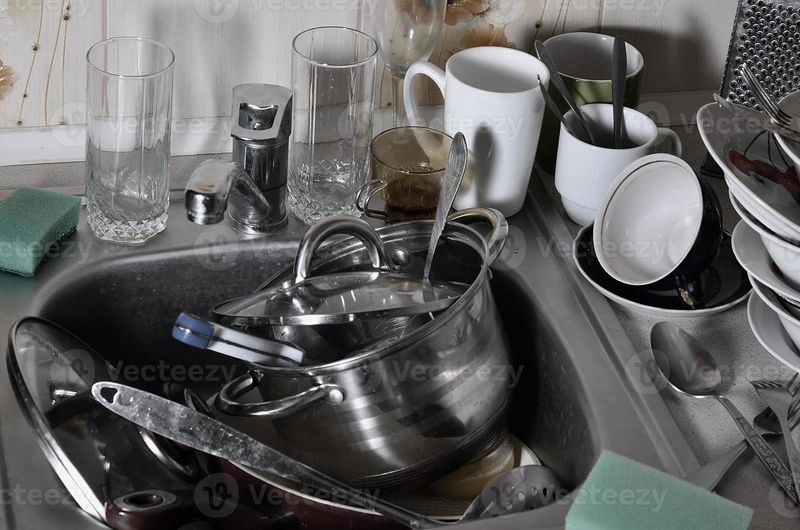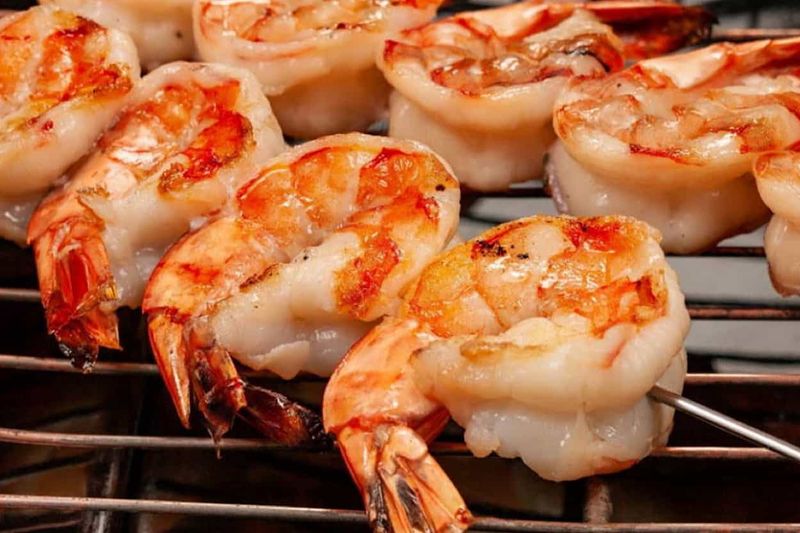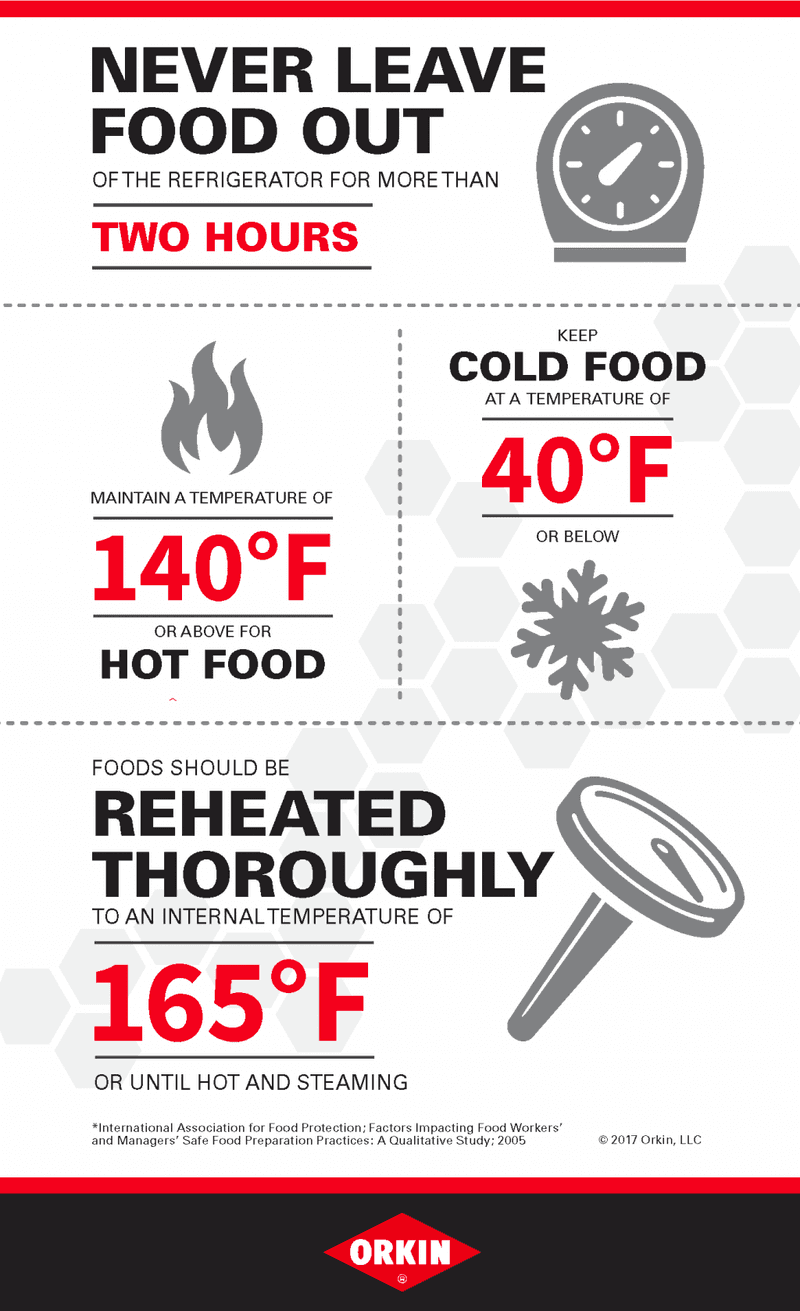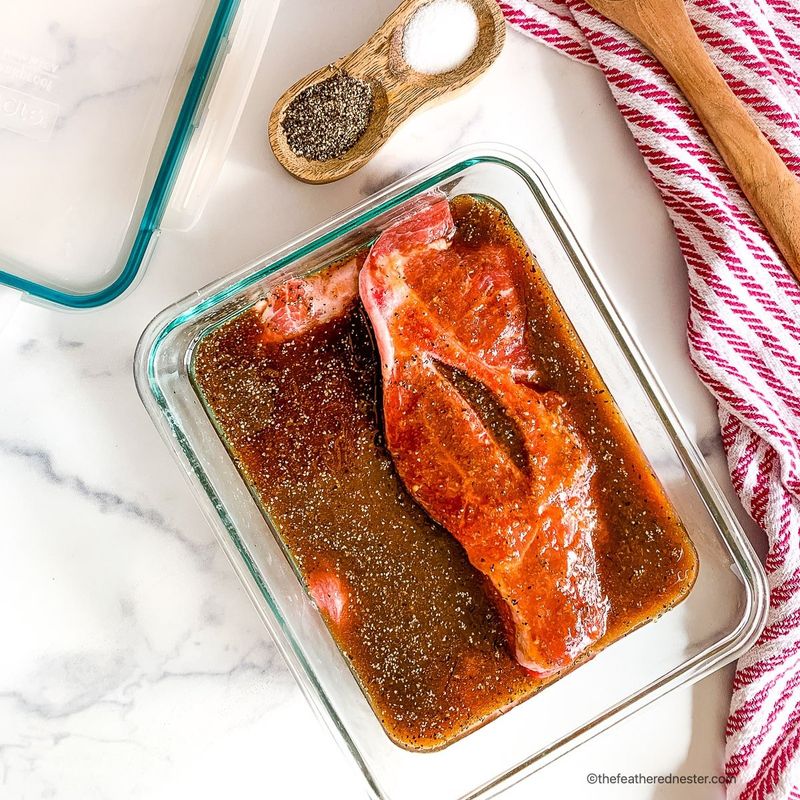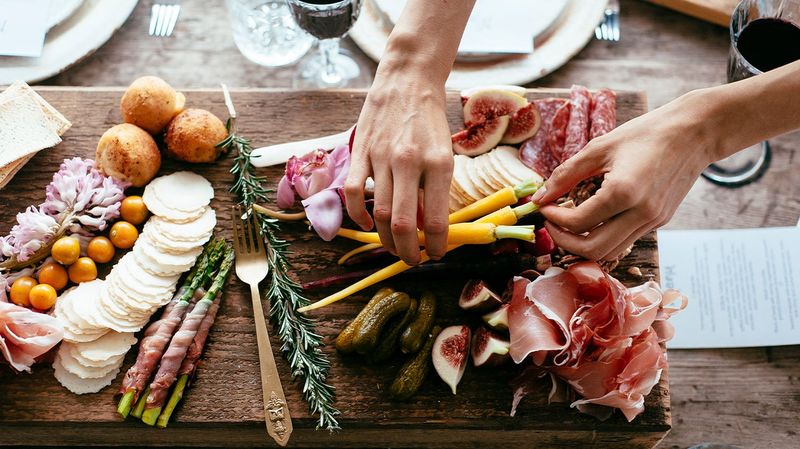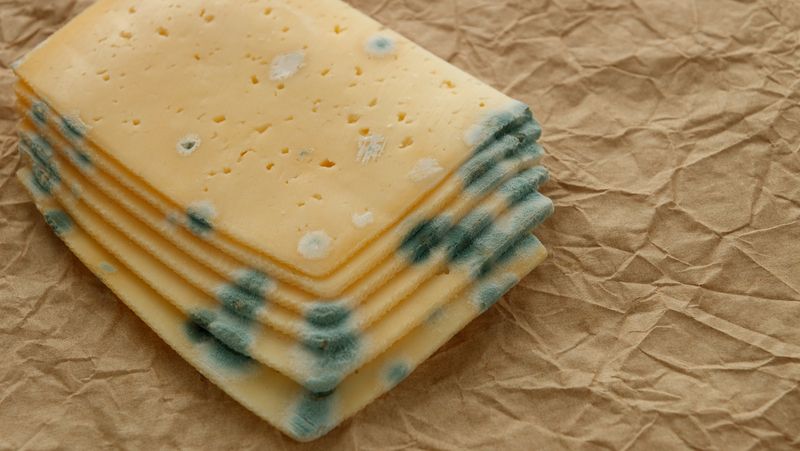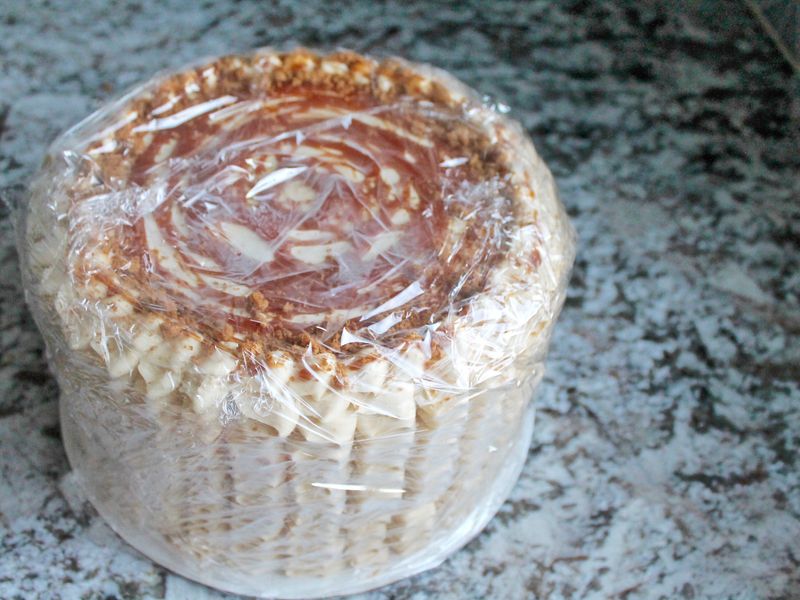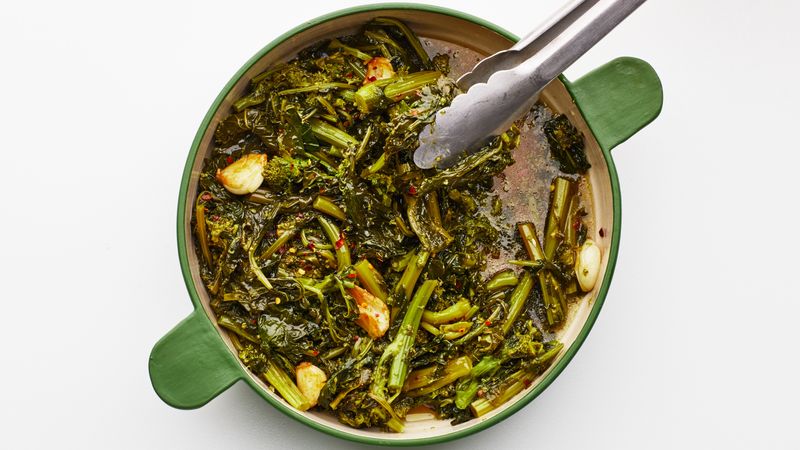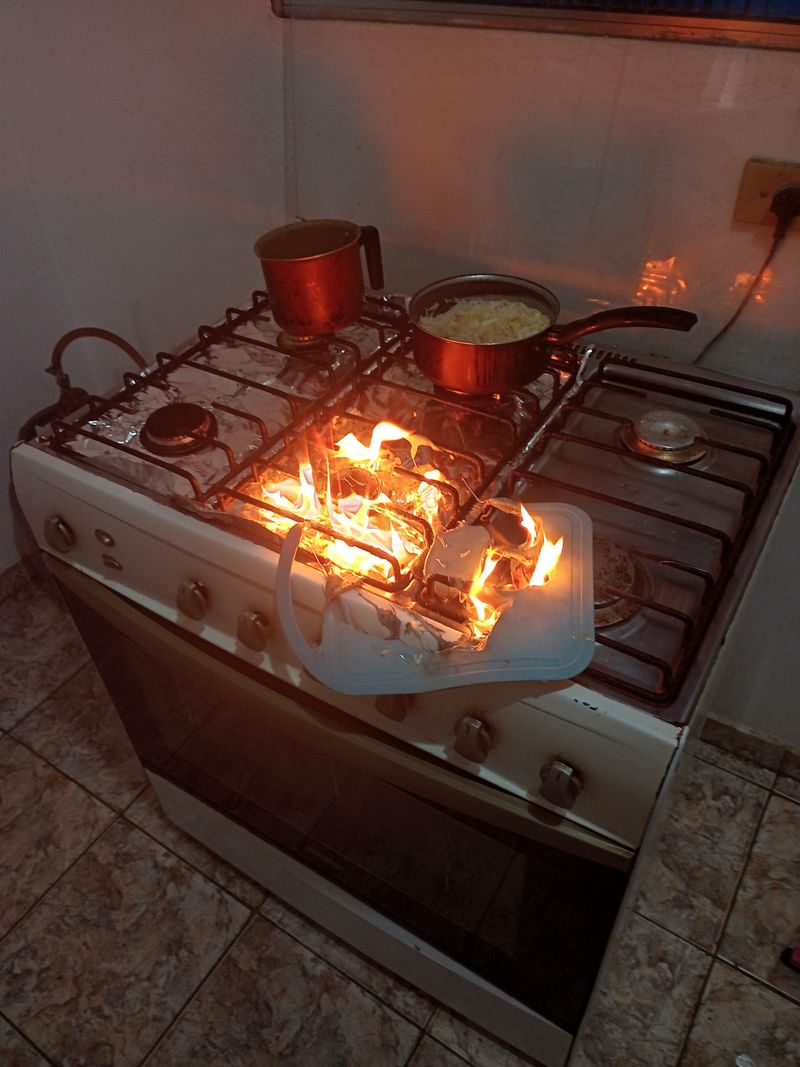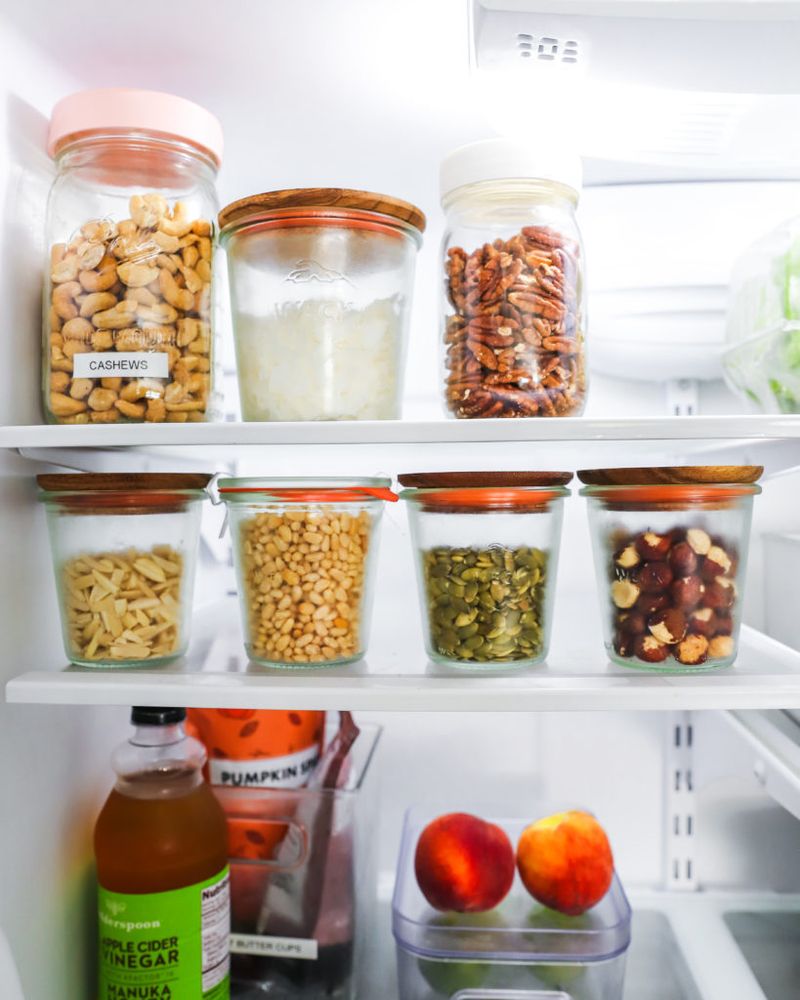Christmas is a time of joy, warmth, and delicious feasts. However, the festive cooking frenzy can sometimes lead to dangerous mistakes in the kitchen that might put your health at risk.
Here we explore 29 common Christmas cooking errors that could potentially poison you and ruin the holiday cheer. From undercooked meats to improper food storage, being aware of these pitfalls can ensure a safe and happy festive season.
Make sure your culinary skills shine without the worry of foodborne illnesses by avoiding these hazardous cooking blunders.
1. Undercooked Turkey
Cooking a turkey is often the centerpiece of a Christmas feast. However, ensuring it’s cooked thoroughly is crucial. An undercooked turkey may harbor harmful bacteria such as Salmonella or Campylobacter, leading to food poisoning.
Always use a meat thermometer to check the internal temperature, which should reach at least 165°F (75°C). Let the turkey rest before carving to allow juices to redistribute. Not only does this ensure safety, but it also enhances flavor and tenderness.
Keep a close eye on the cooking time and temperature to avoid this common mistake.
2. Cross-Contamination
Cross-contamination is a prevalent kitchen mishap that can easily lead to food poisoning. It occurs when raw meat juices come in contact with ready-to-eat foods, like salads or fruits.
Always use separate cutting boards and utensils for raw and cooked foods. Washing hands thoroughly after handling raw meat is equally essential.
This simple precaution can prevent the spread of harmful bacteria, ensuring your Christmas meal is both delicious and safe. Being vigilant about cross-contamination keeps your kitchen hygienic and your loved ones healthy during the festive season.
3. Improper Leftover Storage
Storing leftovers improperly can turn your delicious Christmas feast into a breeding ground for bacteria. Leftovers should be cooled and refrigerated within two hours of cooking to prevent bacterial growth.
Use airtight containers to ensure freshness and prevent contamination. Labeling containers with dates can help manage consumption timelines, reducing waste and health risks. Remember, when in doubt, throw it out.
Proper storage techniques not only preserve the flavors of your holiday meals but also protect your family’s health. Avoid this mistake to enjoy leftovers safely.
4. Using Expired Ingredients
Using expired ingredients can ruin not just the taste but also the safety of your Christmas dishes. Spices and packaged goods tend to lose potency and can harbor bacteria after expiration.
Always check expiration dates before using any ingredient, especially for special recipes. Properly store spices and pantry items in cool, dry places to extend their shelf life.
When ingredients are fresh and within their usable dates, the flavors in your cooking will be enhanced, and the risk of foodborne illness minimized. Stay vigilant to keep your dishes delectable and safe.
5. Undercooked Stuffing
Stuffing is a holiday staple but can be dangerous if not cooked properly. If stuffing is cooked inside the bird, it should reach the same internal temperature as the turkey itself—165°F (75°C).
Undercooked stuffing can harbor harmful bacteria, posing a risk of food poisoning. Opt for cooking stuffing separately to ensure it cooks evenly. This not only reduces the risk but also allows the stuffing to develop a crispy texture.
Prioritizing safety doesn’t mean sacrificing taste; instead, it ensures a worry-free meal for you and your guests.
6. Improper Thawing Methods
Improper thawing of frozen poultry can set the stage for food poisoning. Leaving a turkey at room temperature for too long allows bacteria to multiply rapidly. Instead, thaw in the refrigerator, allowing approximately 24 hours for every 5 pounds of weight.
Alternatively, use cold water thawing or a microwave if you’re short on time, but ensure to cook immediately afterward. Safe thawing maintains food quality and safety, preventing bacterial growth.
Planning ahead for thawing can make your Christmas cooking smoother and safer, keeping your loved ones healthy.
7. Leaving Food Out Too Long
Festive gatherings often lead to food being left out for extended periods. This can result in bacterial growth, turning a joyful celebration into a health hazard.
To avoid this, observe the two-hour rule: perishable food should not remain unrefrigerated for more than two hours. Use chafing dishes or warming trays to keep hot foods hot and ice baths for cold items.
Your diligence ensures that food remains safe and flavorful throughout the celebration. By managing food temperatures, you safeguard against potential foodborne illnesses and keep the festive spirit alive.
8. Not Washing Vegetables Properly
Washing vegetables is a crucial step to prevent food poisoning, yet it’s often overlooked during the Christmas rush. Pesticides and bacteria like E. coli can linger on unwashed produce.
Rinse fruits and vegetables under running water and use a brush for firm-skinned produce. Even items labeled ‘pre-washed’ can benefit from an additional rinse.
Proper washing removes contaminants that could spoil your festive dish and your guests’ health. Taking the time to clean produce thoroughly ensures that your Christmas meals are fresh, vibrant, and safe for everyone to enjoy.
9. Reheating Food Improperly
Reheating food might seem straightforward, but doing it improperly can lead to food poisoning. Uneven heating can leave cold spots where bacteria thrive. Ensure that all parts of the food reach an internal temperature of 165°F (75°C).
Stirring food midway through reheating can help distribute heat evenly. Avoid reheating leftovers more than once, as each reheating cycle increases the risk of bacterial growth. By reheating carefully, you enjoy delicious and safe leftovers.
This attention to detail allows you to savor your festive meals without compromising on safety.
10. Using Raw Eggs in Desserts
Raw eggs are often used in festive desserts like tiramisu or homemade eggnog, posing a risk of Salmonella. Opt for pasteurized eggs to minimize this risk, or consider alternatives like heat-treated recipes.
Raw eggs should be handled with care, ensuring all surfaces and utensils are clean. This prevents cross-contamination and reduces the likelihood of foodborne illnesses. By making informed choices, you can enjoy traditional holiday treats safely.
This simple switch ensures that your festive desserts remain a highlight of the season without compromising your guests’ well-being.
11. Overstuffing the Fridge
During Christmas, refrigerators often brim with food, risking improper cooling. Overstuffing can prevent cold air from circulating effectively, allowing food to spoil.
Arrange items to allow airflow, and store leftovers in shallow containers to cool them quickly. Maintaining the refrigerator’s temperature below 40°F (4°C) is key to food safety.
By organizing your fridge efficiently, you preserve food quality and prevent foodborne illnesses. An uncluttered fridge not only keeps your Christmas ingredients fresh but also ensures a stress-free cooking environment, making the festivities more enjoyable for all.
12. Improper Canning of Jams and Preserves
Homemade jams and preserves are a delightful Christmas gift but can become hazardous if not canned properly. Incorrect canning techniques can lead to botulism, a serious form of food poisoning.
Ensure that jars are sterilized and sealed correctly, using recommended water bath or pressure canning methods. Follow trusted recipes and guidelines to maintain safety and quality.
By canning with care, you ensure that your homemade gifts are both delicious and safe. This attention to detail reflects your love and care, making your holiday offerings truly special and worry-free.
13. Ignoring Allergen Alerts
Ignoring food allergen alerts can turn a joyful feast into a medical emergency. Always be mindful of common allergens like nuts, dairy, and gluten when preparing Christmas meals.
Clearly label dishes with potential allergens, and offer alternative options when possible. Honest communication with guests about ingredients can prevent allergic reactions. By considering dietary restrictions, you create an inclusive festive environment.
This thoughtful approach ensures that everyone can enjoy your holiday hospitality without worry, making celebrations enjoyable and safe for all your loved ones.
14. Improper Use of Kitchen Towels
Kitchen towels are a staple but can become a source of cross-contamination. Using the same towel for different tasks, such as wiping hands and cleaning surfaces, spreads bacteria.
Designate specific towels for drying hands, cleaning dishes, and wiping counters. Regularly wash towels in hot water to kill germs. By maintaining clean and separate towels, you reduce the risk of spreading harmful bacteria in your kitchen.
This simple change can enhance hygiene and safety, ensuring that your Christmas cooking remains a delightful experience without compromising health.
15. Inadequate Hand Washing
Proper hand washing is essential, yet often neglected during the festive rush. Inadequate hand washing can spread bacteria, leading to potential foodborne illnesses.
Use soap and water, scrubbing hands for at least 20 seconds, especially after handling raw meat or eggs. Dry hands thoroughly with a clean towel. By prioritizing hand hygiene, you minimize the risk of contamination in your Christmas cooking.
This small but vital habit ensures that your holiday meals are prepared safely, allowing everyone to enjoy the festivities without health concerns.
16. Using Damaged Nonstick Cookware
Damaged nonstick cookware can release harmful compounds into your food, posing health risks. Scratches in the coating allow chemicals to leach into meals, especially at high temperatures.
Regularly inspect your nonstick pans and replace them if the surface is compromised. Consider using wooden or silicone utensils to prolong their life. By maintaining your cookware, you ensure that your Christmas dishes are not only tasty but also safe.
This attention to detail reflects the care and love put into festive meals, preserving both flavor and health.
17. Adding Too Much Salt
Excessive salt can ruin a dish and pose health risks, including hypertension. During the festive season, with complex recipes, it’s easy to misjudge salt levels. Taste as you cook and adjust gradually, considering dietary needs of guests.
Opt for herbs and spices to enhance flavor without relying solely on salt. This mindful approach ensures that your Christmas meals are both delicious and healthy.
By balancing flavors, you create dishes that satisfy everyone’s palate, making the festive dining experience enjoyable and memorable for all.
18. Using Unwashed Utensils
Using unwashed utensils between different cooking tasks can lead to cross-contamination. Raw meat juices or batter residue can spread bacteria to other foods, increasing poisoning risks.
Always wash utensils thoroughly between tasks or use separate tools for different ingredients. This precaution keeps your cooking area clean and reduces hazards.
By maintaining a tidy and organized kitchen, you ensure that your Christmas cooking is both enjoyable and safe. Clean utensils reflect a commitment to quality and care in preparing festive meals for your loved ones.
19. Inadequate Cooking of Seafood
Seafood dishes are a festive favorite, but inadequate cooking can lead to serious health issues. Undercooked seafood may harbor parasites or bacteria like Vibrio. Ensure that shrimp and fish reach an internal temperature of 145°F (63°C).
Look for opaque flesh and firm texture as signs of doneness. This careful approach ensures that your seafood dishes are both safe and delicious.
By cooking with precision, you elevate your Christmas menu, providing a delightful and secure dining experience for all your guests.
20. Neglecting Food Temperature Safety
Maintaining proper food temperature is crucial to prevent poisoning. Hot foods should remain above 140°F (60°C), while cold foods should stay below 40°F (4°C). Use food thermometers to verify temperatures during cooking and serving.
This practice reduces the risk of bacterial growth, ensuring meals remain safe. By observing temperature guidelines, you protect your guests’ health while enhancing the dining experience.
This diligent approach reflects the care and effort you put into preparing a joyful and secure Christmas feast for your loved ones.
21. Improper Use of Leftover Marinades
Using leftover marinades on cooked meat can lead to cross-contamination. Bacteria from raw meat can thrive in marinades, posing a poisoning risk if reused without cooking.
Always boil leftover marinades before using them on cooked food, or reserve a portion before marinating raw meat. By following this practice, you ensure that your dishes remain flavorful and safe.
This mindful cooking technique allows you to enjoy deliciously marinated Christmas meals without compromising health. It highlights your attention to detail and commitment to a safe, enjoyable festive dining experience.
22. Consuming Undercooked Pork
Undercooked pork poses serious health risks, including trichinosis and bacterial infections. Ensure that pork reaches an internal temperature of at least 145°F (63°C), resting for three minutes before serving.
Avoid pinkness in pork, looking for firm, opaque flesh instead. This careful attention ensures that your pork dishes are safe and delectable.
By cooking pork properly, you enhance the quality and safety of your Christmas feast, providing a worry-free dining experience for everyone. This diligence in preparation reflects the care and love shared during the festive season.
23. Not Accounting for Dietary Restrictions
Failing to consider dietary restrictions can lead to discomfort or health issues for guests. Always inquire about dietary needs beforehand and clearly label dishes to avoid confusion.
Providing diverse options ensures inclusivity and enjoyment for everyone. This consideration reflects thoughtfulness and hospitality, making your festive dinner a welcoming experience for all.
By accommodating various dietary preferences, you enhance the spirit of sharing and togetherness during Christmas. This approach allows every guest to partake in the joy of the meal, fostering a sense of community and celebration.
24. Improper Cheese Storage
Cheese is a popular festive ingredient but can spoil quickly if not stored properly. Keep cheese in the refrigerator, wrapped in wax paper or cheese paper to maintain freshness. Avoid plastic wrap, which traps moisture and promotes mold growth.
Allow cheese to reach room temperature before serving for optimal flavor, but return leftovers to the fridge promptly. By storing cheese correctly, you preserve its quality and safety, ensuring delightful Christmas dishes.
This attention to detail adds to the culinary enjoyment of your festivities, making meals memorable and safe.
25. Using the Wrong Cooking Oil
Using the wrong cooking oil can affect both flavor and safety. Oils have different smoke points, and using a low smoke point oil like olive oil for high-heat cooking can release harmful chemicals.
Opt for oils with high smoke points, such as canola or sunflower, for frying or roasting. This choice enhances the taste and safety of your dishes, allowing the natural flavors to shine.
By choosing the right oil, you demonstrate culinary expertise and care in preparing your Christmas meals, ensuring a delicious and safe dining experience for all.
26. Improper Defrosting of Desserts
Improper defrosting of desserts can compromise both texture and safety. Desserts should be defrosted gradually in the refrigerator to maintain quality and prevent bacterial growth. Avoid leaving them at room temperature, which can lead to uneven thawing and spoilage.
Planning ahead for dessert defrosting ensures that your sweet treats remain delightful and safe. By handling desserts with care, you enhance the appeal of your Christmas spread, offering a satisfying and secure indulgence for everyone to enjoy.
This practice reflects the love and effort behind each festive creation.
27. Overcooking Vegetables
Overcooking vegetables can strip them of nutrients and flavor, reducing their health benefits and appeal. Aim to cook vegetables just until tender-crisp, preserving their bright colors and natural taste.
This method retains vitamins and enhances presentation, making dishes more enticing. By cooking vegetables properly, you contribute to a balanced and nutritious Christmas meal.
This attention to culinary detail reflects the care and creativity in your festive cooking, encouraging everyone to enjoy the wholesome goodness of each dish. Celebrating with vibrant, flavorful vegetables adds joy to the holiday table.
28. Ignoring Fire Safety
Ignoring fire safety can turn festive cooking into a disaster. Always remain vigilant when cooking, keeping flammable items like towels and utensils away from heat sources.
Equip your kitchen with fire extinguishers and smoke alarms, ensuring they are functional. In case of a grease fire, cover the pan with a lid or use baking soda to extinguish it – never use water.
By prioritizing fire safety, you protect your home and loved ones, making Christmas cooking a safe and enjoyable experience. This foresight ensures that holiday cheer is not marred by preventable accidents.
29. Improperly Storing Nuts
Nuts are a festive favorite but can spoil quickly if not stored properly. Keep nuts in airtight containers in a cool, dry place, or refrigerate for extended freshness. Exposure to heat and light can cause nuts to become rancid, affecting taste and safety.
Proper storage preserves their natural oils and flavor, ensuring that they remain a tasty addition to your Christmas treats.
By taking these precautions, you enhance the quality and enjoyment of your holiday dishes, showcasing the thought and care in every bite. Enjoy fresh, delicious nuts throughout the festive season.
